UK Inflation Falls to 2.3%, Lowest in 3 Years
By Rediff Money Desk, London May 22, 2024 15:50
UK inflation drops to 2.3% in April, the lowest in nearly three years, but remains above the Bank of England's target. Read more about the impact on the economy and interest rates.
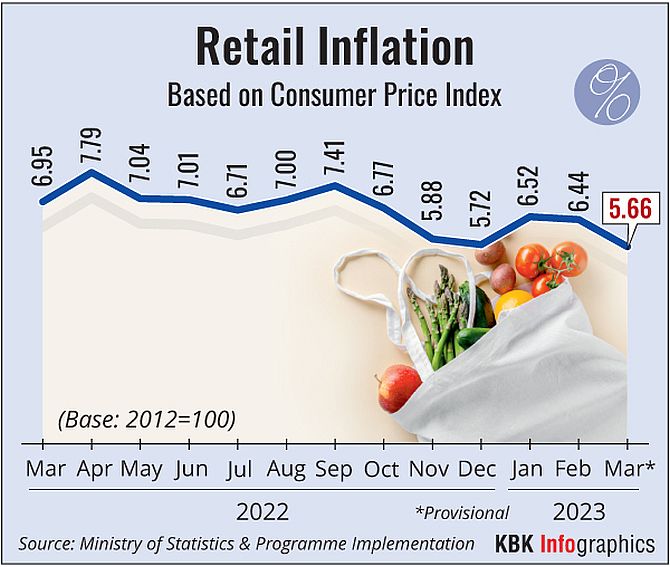
Photograph: Danish Siddiqui/Reuters
London, May 22 (AP) Inflation in the UK fell sharply to its lowest level in nearly three years in April on the back of big declines in domestic bills, official figures showed on Wednesday.
The Office for National Statistics said inflation, as measured by the consumer prices index, fell to 2.3 per cent in the year to April, down from 3.2 per cent in March.
That is the lowest level since July 2021 when the global economy was still being held back by the coronavirus pandemic. The fall also takes inflation nearer to the Bank of England's target rate of 2 per cent and is likely to pile pressure on its nine-member rate-setting panel to cut interest rates from the current 16-year high of 5.25 per cent.
The next rate meeting is on June 20 and many economists think the bank will cut borrowing costs. However, others think that ongoing concerns on the panel over the scale of price rises in the crucial services sector and the pace of wage increases, which raise the risks of an inflation rebound if interest rates are cut too soon, make an August reduction more likely.
Though the latest fall in inflation is welcome, it didn't drop as far as some economists had hoped. It also doesn't mean the cost of living crisis the worst in around 40 years is over. Lower inflation, after all, just shows that prices are rising more slowly than they were before.
Consumers are still living with far higher prices and how you take today's inflation data will depend on whether your glass is half full or half empty," said James Smith, research director at the Resolution Foundation.
"While it's clearly good news headline inflation is back to normal levels, it is disappointing that price pressures haven't fallen further and that measures of services inflation are proving more stubborn that expected.
Inflation hit a high above 11 per cent at the end of 2022 in the wake of Russia's invasion of Ukraine, which led to sharp increases in energy costs.
Over the past couple of years, goods and services have risen by 15 per cent, with food prices up even more at around 25 per cent.
The Bank of England, like the US Federal Reserve and other central banks around the world, raised interest rates aggressively in late 2021 from near zero to counter price rises first stoked by supply chain issues during the coronavirus pandemic and then by Russia's invasion of Ukraine.
Higher interest rates which cool the economy by making it more expensive to borrow, thereby bearing down on spending have contributed to bringing down inflation worldwide. Figures last week showed that the British economy has started growing again.
Britain's governing Conservative Party hopes that lower inflation and falling interest rates may trigger a feelgood factor ahead of a general election that has to take place by January 2025. Opinion polls suggest that the main opposition Labour Party is ahead of the Conservatives, who have been in power since 2010.
Today marks a major moment for the economy, with inflation back to normal," Prime Minister Rishi Sunak said.
Labour's economy spokesperson Rachel Reeves said now is not the time for Conservative ministers to be popping champagne corks and taking a victory lap.
The Office for National Statistics said inflation, as measured by the consumer prices index, fell to 2.3 per cent in the year to April, down from 3.2 per cent in March.
That is the lowest level since July 2021 when the global economy was still being held back by the coronavirus pandemic. The fall also takes inflation nearer to the Bank of England's target rate of 2 per cent and is likely to pile pressure on its nine-member rate-setting panel to cut interest rates from the current 16-year high of 5.25 per cent.
The next rate meeting is on June 20 and many economists think the bank will cut borrowing costs. However, others think that ongoing concerns on the panel over the scale of price rises in the crucial services sector and the pace of wage increases, which raise the risks of an inflation rebound if interest rates are cut too soon, make an August reduction more likely.
Though the latest fall in inflation is welcome, it didn't drop as far as some economists had hoped. It also doesn't mean the cost of living crisis the worst in around 40 years is over. Lower inflation, after all, just shows that prices are rising more slowly than they were before.
Consumers are still living with far higher prices and how you take today's inflation data will depend on whether your glass is half full or half empty," said James Smith, research director at the Resolution Foundation.
"While it's clearly good news headline inflation is back to normal levels, it is disappointing that price pressures haven't fallen further and that measures of services inflation are proving more stubborn that expected.
Inflation hit a high above 11 per cent at the end of 2022 in the wake of Russia's invasion of Ukraine, which led to sharp increases in energy costs.
Over the past couple of years, goods and services have risen by 15 per cent, with food prices up even more at around 25 per cent.
The Bank of England, like the US Federal Reserve and other central banks around the world, raised interest rates aggressively in late 2021 from near zero to counter price rises first stoked by supply chain issues during the coronavirus pandemic and then by Russia's invasion of Ukraine.
Higher interest rates which cool the economy by making it more expensive to borrow, thereby bearing down on spending have contributed to bringing down inflation worldwide. Figures last week showed that the British economy has started growing again.
Britain's governing Conservative Party hopes that lower inflation and falling interest rates may trigger a feelgood factor ahead of a general election that has to take place by January 2025. Opinion polls suggest that the main opposition Labour Party is ahead of the Conservatives, who have been in power since 2010.
Today marks a major moment for the economy, with inflation back to normal," Prime Minister Rishi Sunak said.
Labour's economy spokesperson Rachel Reeves said now is not the time for Conservative ministers to be popping champagne corks and taking a victory lap.
Source: ASSOCIATED PRESS
Read More On:
DISCLAIMER - This article is from a syndicated feed. The original source is responsible for accuracy, views & content ownership. Views expressed may not reflect those of rediff.com India Limited.
You May Like To Read
TODAY'S MOST TRADED COMPANIES
- Company Name
- Price
- Volume
- GTL Infrastructure
- 2.93 ( -4.87)
- 226206286
- IFL Enterprises
- 1.30 (+ 4.84)
- 81461564
- Vodafone Idea L
- 16.79 (+ 0.66)
- 67447398
- NCL Research
- 0.95 ( -4.04)
- 31996628
- Franklin Industries
- 3.73 (+ 3.32)
- 21511209
MORE NEWS

West Bengal Offers Potatoes at Rs 26/kg to Curb...
West Bengal Cold Storage Association offers to supply potatoes to the state government...

Panasonic Avionics Opens Software Facility in Pune
Panasonic Avionics opens a new software design and development facility in Pune, India,...

Karnataka Job Quota Bill: Biocon's Kiran...
Biocon Chair Kiran Mazumdar-Shaw urges exemption for highly skilled recruitment from...




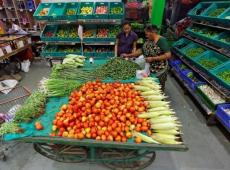
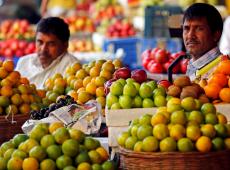
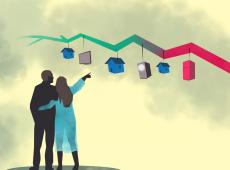
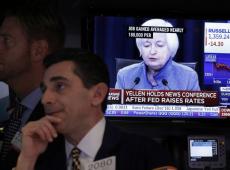
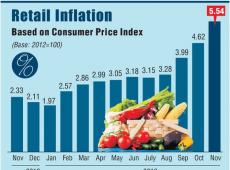
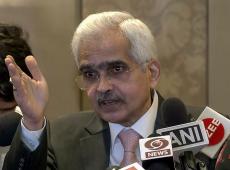
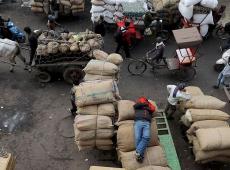
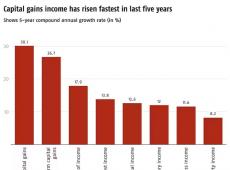
 © 2024 Rediff.com India Limited. All rights reserved.
© 2024 Rediff.com India Limited. All rights reserved.